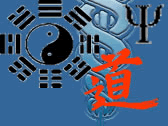
Home
| Products
| Services
| Articles
| FAQ | Staff
| Links | Contact
Us
Ho'oponopono
-Shannon Sumrall,
M.A., M.Ed., LPC, NCC
The ancient Hawaiians used a group conflict solving process known as the ho'oponopono. Ho'oponopono means to make right, to rectify an error (King, 2002). This psycho-spiritual approach acts as a dynamic element in releasing the negative effects of past and present actions in people's lives by cleansing spiritually, mentally and physically through a process of repentance, forgiveness and transmutation (Simeona, 2002). The ho'oponopono is a truth-seeking, nonjudging, solution oriented process in which the facilitator's culture does not act as a confounding element and this enables it to be an effective cross-cultural model (Patten, 1994). Lee, Oh, & Mountcastle (1990) have commented on the use of indigenous techniques of helping being both important and common among counselors. Morrnah Nalamaku Simeona is a native Hawaiian that has demonstrated great success with this technique and the ho'oponopono has proven so effective that Simenoa has been invited to teach this method at the United Nations, the World Health Organization and at institutions of healing worldwide (King, 2002). This technique has been used effectively in agencies, business organizations, and as a conflict resolution model for school counselors (Brinson & Fisher, 1999).
Steps in doing Ho'oponopono (1):
1. Ho'omalu- quiet time; time to think about the problem
2. Kukulu kumuhana- state the problem
3. Mahiki- discuss the problem
with everyone involved
A) What do you like about the other person?
B) What does he/she do that irritates you?
C) What are some helpful ways we can help him/her improve?
4. Ha'ina- confession; admitting to guilt and asking for forgiveness
5. Kalana- forgiveness
6. Panina- closing
A) Response to the session
B) Showing aloha (love, friendship) by patting another on the back, shaking
hands, or hugging
(1). (Ho'oponopono Hawaiian Conflict Resolution, 2002)
References
Brinson, J. & Fisher, T. A. (1999). The Ho'oponopono Group: A Conflict Resolution Model for School Counselors. Journal for Specialists in Group Work, 24(4), 369-382.
King, D. Beyond Traditional Means: Ho'oponopono, An interview with Morrnah Simeona and Dr. Stan Hew Len. Retrieved April 9, 2002, from http://www.hooponopono.org/Articles/beyond_traditional_means.htm
Lee, C. C., Oh, M. Y., & Mountcastle, A. R. (1990). Indigenous models of helping in non- Western countries: Implications for multicultural counseling. Journal of Multicultural Counseling and Development, 20, 3-10.
Simeona, M. N. History and Philosophy. Retrieved April 9, 2002, from http://www.hooponopono.org/history_and_philosophy.htm
Home
| Products
| Services
| Articles
| FAQ | Staff
| Links | Contact
Us
A
C
B
The
information on this site is educational in context and is not to be used to
diagnose, treat or cure any disease. Please consult your licensed health care
practitioner before using this or any healthcare or medical information.
Copyright 2003


